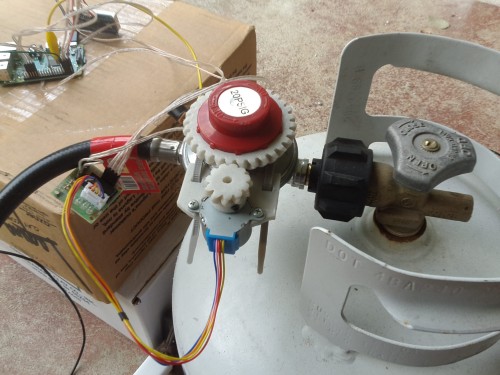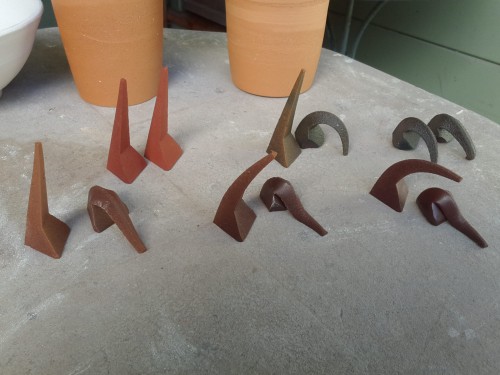| I’ve always fantasised about having a kiln in the garage (Eben wants a pick and place machine; we need another garage). Kilns, though, are expensive. And where do you start if you want to refurbish a broken or old one safely? James Huang has an answer, and it’s got a Raspberry Pi in it. (Well, not in it, but attached very firmly to it.
James’s girlfriend is an enthusiastic potter, and James is an equally enthusiastic hacker. They came together and made  Stepper motor and propane regulator The kiln operates via a PID, which controls the temperature taking closed-loop feedback from the thermocouple to the regulator. Adjustments can be made remotely; the kiln controller system has WiFi. James has a really interesting series of photographs, with explanatory text and some examples of test firings, over at imgur; he also answers questions about the project at Reddit.  Results of two test firings – the variously floppy things are pyrometric cones, used to measure temperature in different parts of the kiln. There are so many reasons I love this project. It’s a wonderful demonstration of what can be done with no specialised experience (James had never worked with kilns before starting this project, and neither he nor his girlfriend had any knowledge about firing pottery). The ingenuity on show is just brilliant (3d-printed gears!), the pottery that comes out of the end is immensely satisfying – and face it; there’s something very thrilling about flames. On top of all this, the whole project came in at less than $200. All James’s control software, along with a BOM, is open-source, and available on GitHub. |
A Semi-automated Technology Roundup Provided by Linebaugh Public Library IT Staff | techblog.linebaugh.org
Tuesday, November 11, 2014
WiFi-controlled pottery kiln
Subscribe to:
Post Comments (Atom)

No comments:
Post a Comment